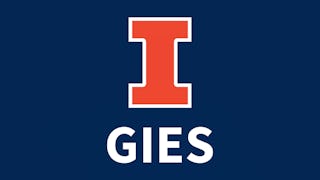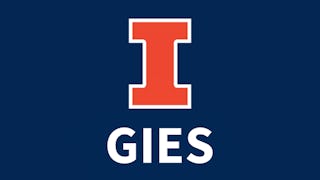This course is the first course in a five-course Financial Reporting Specialization that covers the collection, processing, and communication of accounting information (via financial reports) about economic entities to interested parties (i.e., managers and external stakeholders such as stockholders and creditors). To gain the most relevant knowledge from these courses, learners should have taken a basic accounting course prior to this Specialization (which can be done through Coursera courses, such as any accounting course from the Fundamentals of Accounting Specialization: https://www.coursera.org/specializations/accounting-fundamentals). This Specialization focuses on accounting concepts, principles and theory with an emphasis on problems that arise in applying these concepts for external reporting purposes. Specific emphasis is placed on measurement of assets, liabilities, equities and income, as well as disclosure of additional information that may assist users understand the financial reports.

Cultivate your career with expert-led programs, job-ready certificates, and 10,000 ways to grow. All for $25/month, billed annually. Save now


Accounting Analysis I: The Role of Accounting as an Information System
This course is part of Financial Reporting Specialization

Instructor: Gerlando Lima
42,235 already enrolled
Included with 
(687 reviews)
What you'll learn
Analyze the structure, conceptual framework, and environment of accountancy
Apply the three steps involved in financial accounting (recognize, measure, and report) to practical scenarios
Evaluate the accounting processing cycle and its role in generating financial statements
Critically examine key financial statements and assess their significance for external decision makers
Skills you'll gain
Details to know

Add to your LinkedIn profile
38 assignments
See how employees at top companies are mastering in-demand skills

Build your subject-matter expertise
- Learn new concepts from industry experts
- Gain a foundational understanding of a subject or tool
- Develop job-relevant skills with hands-on projects
- Earn a shareable career certificate


Earn a career certificate
Add this credential to your LinkedIn profile, resume, or CV
Share it on social media and in your performance review

There are 9 modules in this course
You will become familiar with the course, your classmates, and our learning environment. The orientation will also help you obtain the technical skills required for the course.
What's included
2 videos4 readings1 assignment1 discussion prompt1 plugin
We will learn the primary focus of financial accounting and learn about General Accepted Accounting Principles (GAAP) and their key assumptions, as well as compare them to International Financial Reporting Standards (IFRS).
What's included
5 videos2 readings4 assignments
We will use the accounting equation to complete the processing cycle. We will also learn the basic types of month-end adjusting entries. More importantly, we will describe the basic financial statements and how they relate to one another.
What's included
7 videos2 readings6 assignments
We will learn the nuances of the Balance Sheet as well as various forms of disclosures associated with financial statements, including the Auditors' Report and MD&A. We will also review several key liquidity and financing ratios. Lastly, we will learn what's included in the operating segment reporting.
What's included
8 videos2 readings7 assignments
We will learn the key components of the Income Statement (e.g., EPS) and its impact on shareholders’ equity. We will also distinguish income from continuing operations vs discontinued operations. We will learn the key components of the Comprehensive Income and Statement of Cash Flows.
What's included
9 videos2 readings8 assignments
We will learn some of the key concepts and variables related to time value of money.
What's included
5 videos2 readings4 assignments1 peer review
We will learn the key issues involving revenue recognition, including the five key steps. Next, we will determine when to recognize revenue, including involvement of multiple performance obligations and special issues related to steps 4 and 5. Lastly, we will discuss the presentation and disclosure requirements of revenue.
What's included
5 videos2 readings4 assignments
We will understand the two methods of revenue recognition for long-term contracts, and work also with losses on these kind of contracts. In the end, we will review the convergence and differences between USGAAP and IFRS.
What's included
5 videos2 readings4 assignments
If you would like to earn an Honors badge on your certificate for this course, you must complete a peer reviewed case study that will serve as a refresher of all of the concepts that you have learned over the past seven modules. The case study will involve analysis of a publicly held Fortune 500 company in which you will analyze the Annual Report or 10K Report.
What's included
2 videos2 readings1 peer review1 discussion prompt1 plugin
Instructor

Offered by
Recommended if you're interested in Business Essentials


University of Illinois Urbana-Champaign


Corporate Finance Institute


University of Illinois Urbana-Champaign


University of Illinois Urbana-Champaign
Build toward a degree
Why people choose Coursera for their career




Learner reviews
687 reviews
- 5 stars
83.11%
- 4 stars
13.53%
- 3 stars
2.47%
- 2 stars
0.29%
- 1 star
0.58%
Showing 3 of 687
Reviewed on Jun 7, 2020
good learning, learnt lots of thing like revenue recognizetion balance sheet reading etc
Reviewed on Aug 23, 2019
Highly recommend! A very intensive course that will provide you with lots of systemized knowledge on basics of accounting.
Reviewed on Oct 20, 2021
I do wish that there were more example problems in the videos. So that when I get to the knowledge check, the instructor has already walked through how to calculate the answer.
New to Business Essentials? Start here.

Open new doors with Coursera Plus
Unlimited access to 10,000+ world-class courses, hands-on projects, and job-ready certificate programs - all included in your subscription
Advance your career with an online degree
Earn a degree from world-class universities - 100% online
Join over 3,400 global companies that choose Coursera for Business
Upskill your employees to excel in the digital economy
Frequently asked questions
Once you enroll for a Certificate, you’ll have access to all videos, quizzes, and programming assignments (if applicable). If you choose to explore the course without purchasing, you may not be able to access certain assignments.
You will be eligible for a full refund until 2 weeks after your payment date. You cannot receive a refund once you’ve earned a Course Certificate, even if you complete the course within the 2-week refund period. View our full refund policy.
Yes! Coursera provides financial aid to learners who would like to complete a course but cannot afford the course fee. To apply for aid, select "Learn more and apply" in the Financial Aid section below the "Enroll" button. You'll be prompted to complete a simple application; no other paperwork is required.
More questions
Financial aid available,


